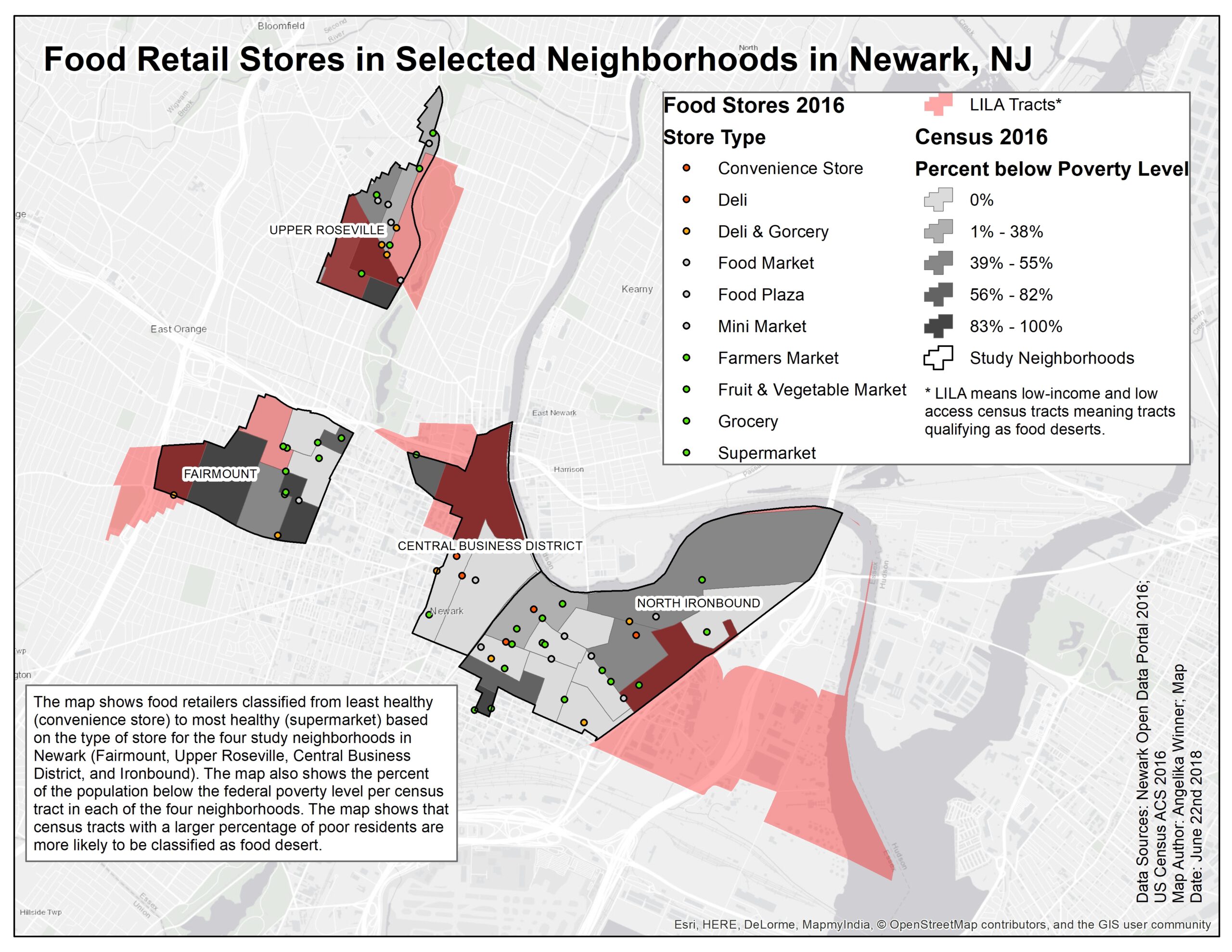Ethnography of Food Provisioning in Newark, NJ: Food Practices, Health Status, Social Identities, and Place of Residency

As part of a research project supported by the CUNY Adjunct Incubator, Graduate Center PhD candidate Angelika Winner outlines the thinking and methods behind her ethnographic study of food provisioning practices in Newark, NJ. Taking a critical approach to the dominant narrative that links the notion of food deserts with obesity rates, Winner seeks to develop an intersectional and dynamic understanding of food environments, eating habits, access, and their entanglements with food inequities.

Read about the project in Angelika Winner’s own words:
“The New York Metropolitan area has a vibrant and eclectic food environment – however there are places where whole foods are not easily accessible, especially in poorer cities such as Newark, NJ. Such places, where residents lack physical access to stores selling a large variety of wholesome foods, have been coined as food deserts. Empirical evidence shows that in the US context poor and working-class populations as well as minority groups are more likely to reside in a food deserts and are also more likely to be obese or experience diet related diseases such as diabetes and hypertension compared to wealthier and white populations. The food desert concept assumes though that there is a cause and effect relationship between these two lines of evidence. This means, it is assumed that poor and minority populations experience these health inequities because they live in food deserts, and thus, the explanations for these inequities are reduced to a mere food supply problem. If supermarkets existed in these food deserts the diet-related health inequities would disappear.

My research aims to explore the food and shopping practices as well as diet-related health status of people with differential access to food stores in Newark by combining ethnographic methods with quantitative spatial analysis in a Geographic Information System (GIS). By understanding how people experience and navigate their food environment, it will be possible to develop a less reductionist and more realistic understanding of food provisioning that moves beyond the supply centered concept of food deserts. My research design combines participant observations and a food store census, as well as semi-structured interviews with a GIS-based network analysis of food accessibility, which takes into consideration the actual street network when evaluating distances to and from stores. By interviewing people who reside in food deserts and outside of food deserts about their daily food provisioning practices, while also documenting their class, race, and gender, it will be possible to compare possible differences in shopping strategies and behaviors based on the location of residence as well as based on socioeconomic characteristics of my participants. I am also interested to find out about the types of tensions and contradictions people experience while navigating their food environment – this includes but is not limited to economic constraints, health issues, disability, and personal/cultural preferences. Furthermore, combining quantitative GIS-based analyses with qualitative ethnographic methods will enable me to detect where food deserts are located within the urban landscape in Newark, and if their relative location affects the shopping practices and strategies of the resident people. My work will also produce an interactive food store atlas for community members in Newark. The atlas will show the location of all food retailers, but it will also compare prices of common whole food items needed in a balanced healthy diet, it will list SNAP participation of the store, and it will compare the quality of food items.”
For more information about ethnography of food provisioning in Newark, NJ, read Angelicka Winner’s blog post here about her research on the relationship between food practices, health status, social identities, and place of residency in Newark, NJ.
This project is part of the CUNY Adjunct Incubator and is co-sponsored by the Center for the Humanities and the Gittell Urban Studies Collective at the Graduate Center, CUNY.

